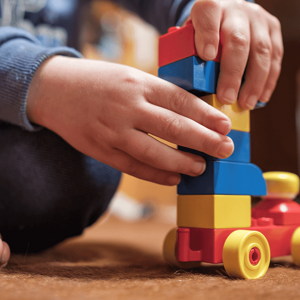Toddlerhood
Learn more about toddler's milk powder, nutrients requirement and their growth and development journey. Browse Wyeth Nutrition ParenTeam Malaysia website for more info.
Recommended content

How Hobbies Benefit Children and Their Learning Experience.
Hobbies can benefit children in so many ways. Help your children find fun hobbies with these simple tips!

Good Nutrition/Nutrients and Micronutrients for Catch-Up Growth
Malnutrition, especially undernutrition often leads to poor development and growth among children.

Top Essential Questions To Ask Your Doctor During Your Child’s Check-up!
While this is common for most parents, it is imperative that you ask the right questions during your visit to fully understand your child’s growth and physical development
4 mins to read

I am worried about my child’s height!
For some parents, their child’s height can be a major concern which is totally normal.
7 mins to read

Outsmart Sugar Cravings: Strategies to Help Your Children
Is your child constantly craving sugar?
5 mins to read

Eating tips for your growing child
When your child starts to become finicky about food, don't worry. It's natural for them. This article provides tips on how to improve his appetite and how to introduce new food.

Impact of delayed growth and tips for parents to help their children
It is important for parents to note that children grow and develop at a different rate and individual differences are expected.
5 mins to read

Good Nutrition, Better Learning: Tips To Help Children Eat Well.
Eating well has a lot to do with children’s learning potential. Do you have little picky eaters?
Toddlerhood is a significant phase in a child’s development, typically spanning from 1 to 2 years old. During this exciting period, toddlers exhibit a range of new skills, personality traits, and assert their independence while staying close to their parents or caregivers. Let’s explore the key aspects of toddlerhood:
Physical Milestones:
- Walking: Most toddlers take their first steps during this time, followed by mastering stairs and running.
- Fine Motor Skills: They learn to undress themselves, use utensils, drink from cups, throw balls, and draw straight lines and circles.
- Cognitive and Communication Skills:
- Pointing to get attention and express desires.
- Saying single words (including “no”) and eventually forming short sentences.
- Understanding common objects’ purposes (phones, brushes, spoons).
- Recognizing body parts.
- Scribbling independently.
- Following 1- to 2-step verbal commands.
- Naming familiar objects and people.
- Sorting shapes and colors.
- Engaging in simple make-believe play.
Social and Emotional Development:
- Temper Tantrums: Toddlers express themselves through tantrums when their bids for independence are denied.
- Fear of Strangers: They may display fear of unfamiliar people.
- Affection: Show affection to familiar individuals.
- Pretend Play: Engage in imaginative play, such as feeding a doll.
- Defiance: Express defiance when told not to do something.
- Social Interaction: Play alongside other children and begin including them in games.
Parental Strategies:
- Promote Empathy: Encourage empathy by modeling kindness and explaining feelings.
- Conflict Management: Teach conflict resolution skills, such as sharing and taking turns.
- Household Participation: Involve toddlers in simple household tasks.
- Safety and Health: Ensure a safe environment and provide a balanced diet.
Remember that each child develops at their own pace, and milestones may vary. If you have concerns about your toddler’s development, consider scheduling a developmental screening with your pediatrician. Enjoy this dynamic phase of discovery and growth! 🌟👶🏽🌿




